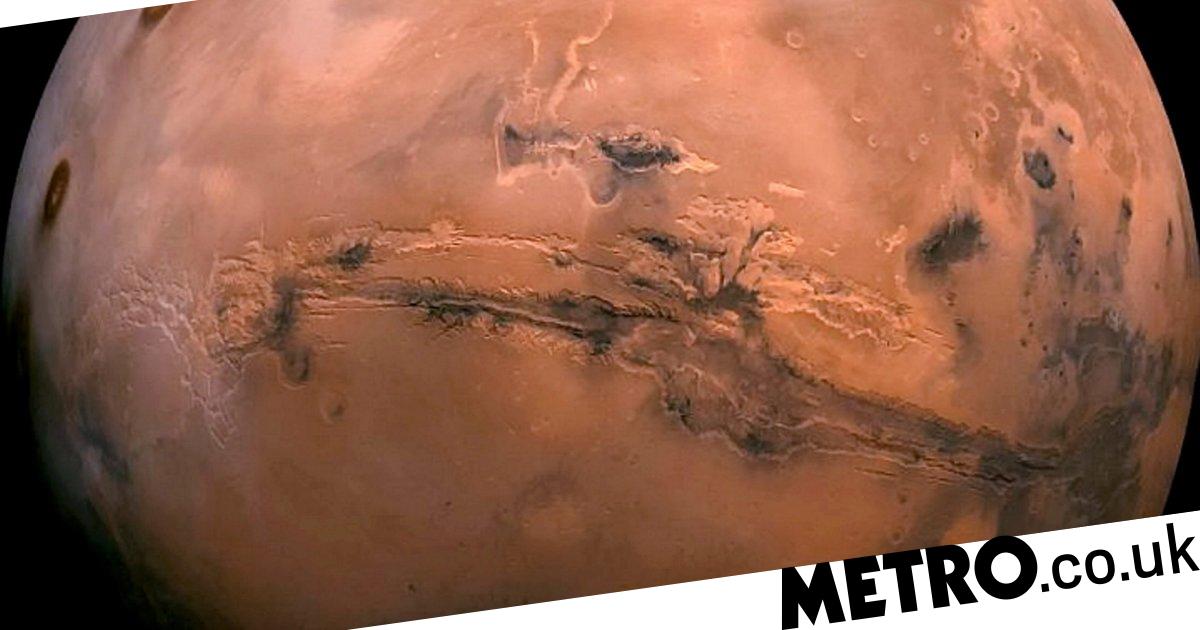When humans move to Mars, they don’t be able to enjoy restaurants like Nando’s or Egg Slut that we Earthlubbers take for granted.
But scientists have calculated that one million people could survive on the Red Planet as long as they agree to grow their own food and farm edible insects.
‘We modelled the calorie needs and land requirements for a permanent martian settlement that reaches a population of one million people and becomes food self-sufficient within a century,’ researchers wrote in their study, which was published in the journal New Space.
‘In the model, calorie needs were met with food produced locally on Mars combined with imports from the Earth.
In the reference model, tens of thousands of supply ships worth of food alone would be needed, but this number can be greatly reduced by a surge in food production capacity during the early years of the settlement. Food sources are constrained on Mars because plants cannot be grown outdoors and raising farm animals is not feasible; however, new technologies, including food computers, automated insect farms, and cellular agriculture, will allow for complete, nonvegan diets produced locally on Mars.
‘Food production and distribution will likely form a significant part of a growing martian economy, with inputs from traditional industries (biotech, robotics, agriculture) and new ones that spring up.’
So why can’t Mars colonisers stick to vegan diets? To help answer this, the paper quoted previous research which found that ‘84% of people who switch to vegetarian or vegan diets go back to eating meat’.
To help satisfy the human lust for meat, researchers suggested farming insects like house crickets.
And if ‘neophobes’ who are scared of new things decide they don’t want to scoff insects, the beastie’s meat could be turned into ‘processed cricket flour’ to hide its creepy-crawly origins.
This type of farming is great for space because it ‘provides a large amount of calories per unit of land while using relatively minor amounts of water and feed’, scientists added.
And if humans simply cannot do without jaffa cakes, strong whisky or whatever else makes their life more bearable, they could have it imported from Earth.
‘To meet the human right of survival, some minimum daily requirement for calories and nutrition will be a necessary activity for settlement on any moon or planet. Anything above these minimum requirements, however, could be a commercial activity,’ said New Space editor-in-chief Ken Davidian, who has worked in the commercial space transportation industry for over 30 years.
‘It’s not hard to imagine that coffee, or extra fruit, or any food item that exceeds the minimum requirements, would be a [commerical product] if customers want to indulge themselves.’
Source: Read Full Article

